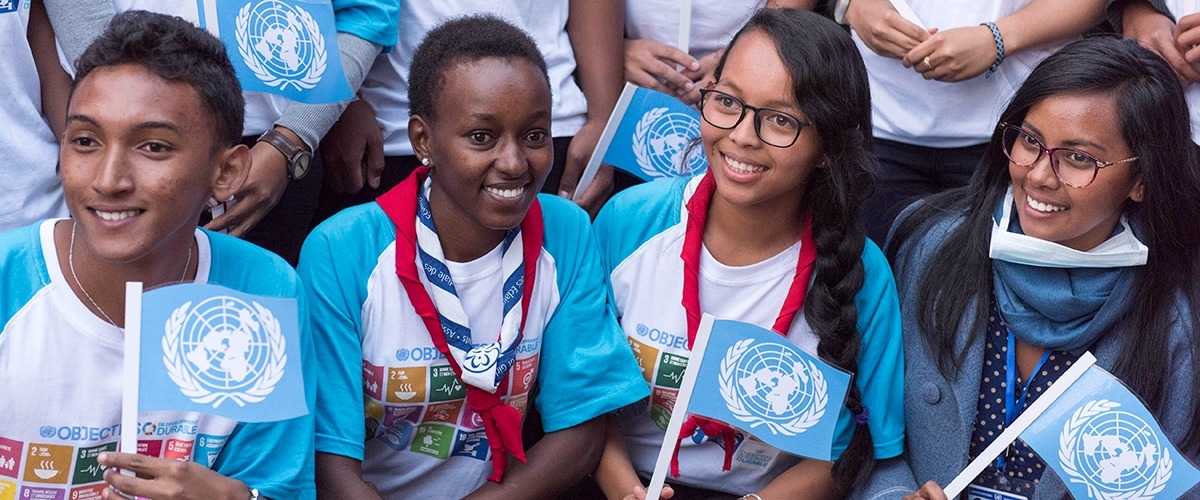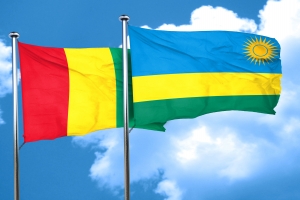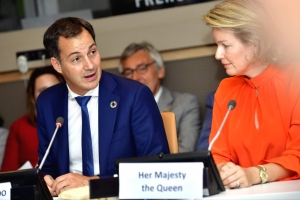Belgium, UNICEF and Benin gather youth at UN for gender equality debate
Youth representatives from all over the world will discuss gender equality today in the margins of the General Assembly of the United Nations. The debate takes place under the impetus of Deputy Prime Minister and Minister of Development Cooperation Alexander De Croo. Together with a few UNICEF youth leaders, the presidents of the Flemish and Francophone Youth Council will also join the debate. Queen Mathilde will address the youth delegates.
 Belgium, UNICEF and Benin gather youth at UN for gender equality debate
Belgium, UNICEF and Benin gather youth at UN for gender equality debateAlexander De Croo: “All over the world girls and women have to deal with inequality. In some countries girls don’t have equal access to health care or they get forced into marriage at young age. In other countries, including ours, inequality is more subtle, for example through unspoken gender norms, gender bias and the impact of traditional roles. I am extremely happy to see a generation who is ready to get rid of this inequality forever”.
By organizing a youth debate during the General Assembly of the United Nations, Belgium, UNICEF and Benin want to keep the gender equality issue on the agenda and motivate the young generation to actively join the battle.
Omar Abdi, UNICEF Deputy Executive Director: “An empowered young person champions gender equality. The government of Belgium is a long-time partner for us at UNICEF in achieving these objectives and we look forward to continuing to work together for a world where every girl and boy and every young woman and man have equal opportunities, equal assets and equal futures.”
Young generation is ready
The presidents of the Flemish and Francophone Youth Council will speak in New York on behalf of the Belgian youth. Among other things, they will discuss the gender pay gap, the question if government should impose quotas to give girls and women more opportunities and how gender norms restrain girls and women to climb up the corporate ladder.
“While everyone knows that diversity makes your team stronger, the fundamental principle of the equality of women and men remains a challenge to pursue”, according to Alexandra Smarandescu, chairman of the Flemish Youth Council. “I truly believe we are at a tipping point. A new generation is coming forward with new ideas, belief in the future and most of all the courage to get things done. Something I can only confirm as chairmen of the Flemish Youth Council.”
“In many ways, our country is a leader in the field of gender equality” according to Stéphanie Ngalula, chairman of the Francophone Youth Council. “I’m very enthusiastic that Belgium is honoring its reputation by showing clear ambition when it comes to gender equality. The young generation must not only be vigilant to maintain what has been achieved, but also be demanding with regards to the significant progress still ahead when it comes to gender equality”.
Five Hundred Million Euros for women’s rights
During the youth debate, #SheIsEqual came up as well, the campaign Minister De Croo launched in Brussels early June, together with the international NGO Global Citizen. #SheIsEqual builds upon the worldwide movement #SheDecides which Minister De Croo and his Dutch counterpart launched last year after President Trump cut the budget of international organizations and NGOs working for women’s rights through family planning.
The aim of #SheIsEqual is to raise five hundred million euros to improve the lives of 20 million girls and women. A major benefit concert is scheduled for December 2nd in Johannesburg where international headliners such as Beyoncé, Chris Martin, Pharrell Williams and Ed Sheeran will perform.
Some facts & figures
- Girls are more often victim to child marriages than boys. Around the globe, almost 15 million girls younger than 18 get married every year. This amounts to 37000 child marriages a day. Globally more than 750 million girls and women got married before they reached 18.
- In 18 countries, men can prohibit their wife to go out to work, in 39 countries girls don’t have the same inheritance rights as boys, in 49 countries there is no legal framework to protect women from domestic abuse.
- Globally, the percentage of women in Parliaments is only 23,7%. Only in 46 countries that number is higher than 30%.
- According to research the percentage of women in top leadership roles is less than a third.
- Women contribute 37% to the gross world product. If women would have the opportunity to contribute as much to the economy, the gross world product would rise with 23.8 billion euros.


